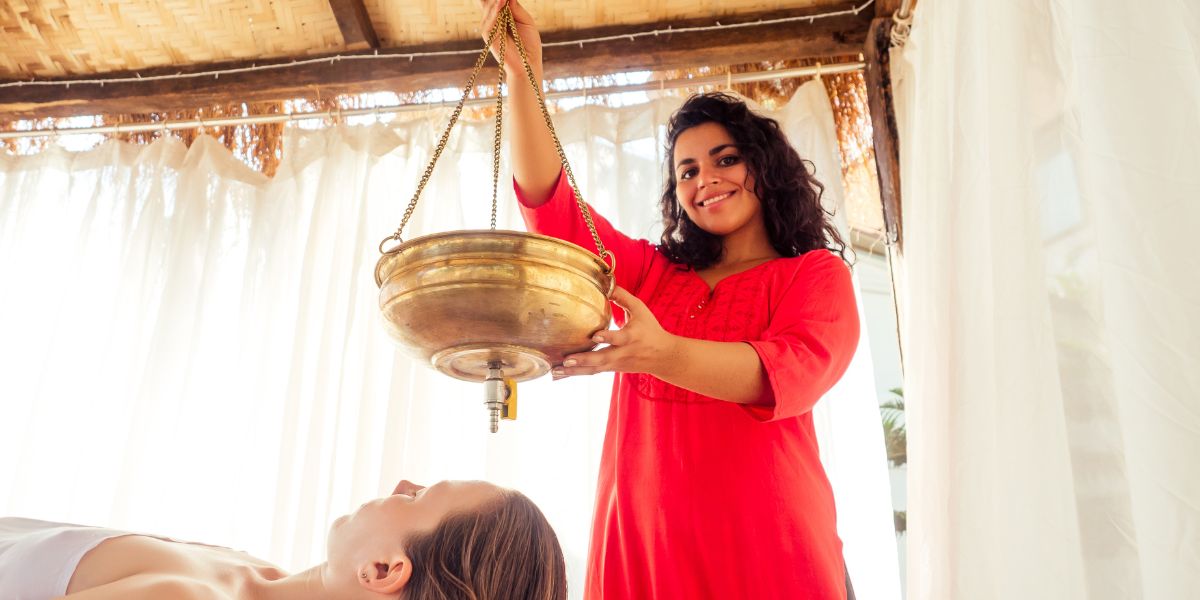
Panchakarma Treatments: A Complete Guide to Ayurvedic Detox and Healing
In today’s fast-paced lifestyle, stress, poor diet, and pollution lead to the accumulation of toxins in the body. Ayurveda, the 5,000-year-old healing science of India, offers a natural way to cleanse and rejuvenate the body through Panchakarma Treatments. Derived from two Sanskrit words, Pancha (five) and Karma (actions), Panchakarma is a set of five therapeutic procedures designed to eliminate toxins, balance the doshas (Vata, Pitta, and Kapha), and restore overall health.
In this blog, we will dive deep into Panchakarma, its types, benefits, and why it remains one of the most trusted natural healing therapies across the world.
What is Panchakarma?
Panchakarma is the ultimate Ayurvedic detoxification process that helps in purifying the body and mind. Unlike modern treatments that often focus on symptoms, Panchakarma works at the root level by balancing the three doshas and strengthening the body’s natural healing system.
It is mentioned in ancient Ayurvedic texts like the Charaka Samhita and Sushruta Samhita, where it is described as a complete healing therapy for both prevention and cure.
Why Panchakarma is Needed
Due to irregular eating habits, lack of sleep, stress, and exposure to pollution, our body accumulates toxins (Ama). These toxins weaken immunity, slow down digestion, and cause chronic illnesses. Panchakarma helps to:
Remove deep-rooted toxins from the body.
Improve digestion and metabolism.
Reduce stress and anxiety.
Restore the natural balance of the doshas.
Boost energy and immunity.
The Five Main Panchakarma Treatments
1. Vamana (Therapeutic Emesis)
What it is: Induced vomiting to remove excess Kapha toxins.
Indications: Asthma, chronic cold, bronchitis, skin diseases.
Benefits: Clears respiratory tract, improves immunity, relieves allergies.
2. Virechana (Therapeutic Purgation)
What it is: Cleansing of Pitta-related toxins from the liver and intestines through herbal purgatives.
Indications: Liver disorders, skin diseases, acidity, chronic fever.
Benefits: Improves digestion, detoxifies liver, clears skin, balances Pitta.
3. Basti (Medicated Enema)
What it is: Administration of herbal oils or decoctions through the rectum.
Indications: Arthritis, constipation, back pain, neurological disorders.
Benefits: Removes Vata-related toxins, nourishes the colon, relieves joint pain.
4. Nasya (Nasal Therapy)
What it is: Herbal oils or powders administered through the nostrils.
Indications: Migraine, sinusitis, hair fall, memory loss, cervical pain.
Benefits: Clears nasal passages, improves concentration, strengthens hair roots.
5. Raktamokshana (Blood Purification)
What it is: Removal of impure blood using leech therapy or controlled venesection.
Indications: Skin diseases, gout, hypertension, varicose veins.
Benefits: Purifies blood, improves circulation, relieves chronic skin disorders.
Purva Karma: Preparatory Procedures
Before starting Panchakarma, the body undergoes two preparatory steps:
Snehana (Oleation Therapy): Internal and external application of medicated oils to loosen toxins.
Swedana (Sudation Therapy): Herbal steam therapy to open body channels and mobilize toxins.
These procedures ensure that toxins are ready to be expelled effectively.
Paschat Karma: Post-Treatment Care
After Panchakarma, maintaining balance is essential. Patients are advised to:
Follow a light, easily digestible diet.
Avoid junk food, alcohol, and heavy exercise.
Practice yoga and meditation.
Continue herbal supplements if prescribed.
This ensures long-lasting benefits.
Benefits of Panchakarma Treatments
Deep detoxification of the body and mind.
Strengthens immunity and vitality.
Improves digestion and metabolism.
Relieves stress, anxiety, and insomnia.
Helpful in managing chronic diseases like arthritis, skin disorders, and respiratory problems.
Promotes anti-aging and longevity.
Who Should and Should Not Take Panchakarma
Suitable For:
People with lifestyle disorders (obesity, stress, diabetes, high BP).
Those suffering from chronic digestive or skin problems.
Individuals seeking seasonal detox.
Not Recommended For:
Pregnant women.
Very elderly or very young children.
People with weak immunity, extreme weakness, or acute illness (unless advised by an Ayurvedic doctor).
Modern Relevance of Panchakarma
oday, Panchakarma is practiced worldwide in Ayurvedic wellness centers and hospitals. With rising awareness of natural healing, Panchakarma is seen not only as a cure but also as a preventive healthcare system. Many people combine it with Yoga, Meditation, and Satvik Diet to achieve complete mind-body wellness.
Cost and Duration of Panchakarma
Duration: Usually ranges from 7 to 21 days depending on the treatment plan.
Cost: Varies between ₹20,000 – ₹1,50,000 in India, depending on the center, duration, and type of therapy.
